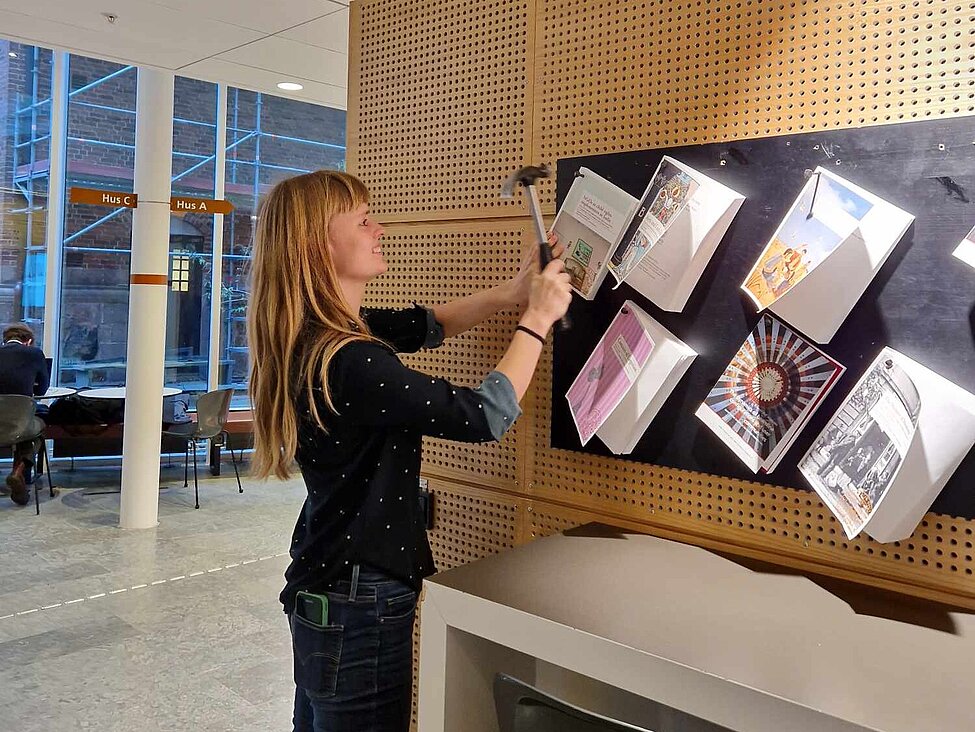Describe your project!
Imagine an ideal state in which all human rights are fulfilled. Do NGOs exist in this state? This is, very simply put, the question I explore in my thesis: what roles do and should NGOs fulfill in human rights implementation? I look specifically at children’s rights to protection from violence and exploitation in India. India has committed itself to ensure these rights for their citizens when they in 1992 signed the UN Convention on the Rights of the Child. But India – just like many other neoliberal states today – has chosen to “outsource” this rights implementation, and thereby a considerable amount of responsibility, to NGOs. I therefore examine what happens when the legal and theoretical idea that the state should implement rights meets a reality where NGOs are important social actors. I look at one case in particular, India’s helpline for children, which is financed by the state but implemented by NGOs, and which fulfils many of children’s rights in India.
Why did you choose to focus on India?
I have focused on India as a research field since the beginning of my bachelor’s degree. It’s not because I think India is more worthy of study than other regions – although it is underrepresented in Scandinavian research, considering its size and geopolitical importance – but I think it is important that a researcher within my field understands a context in-depth. I have therefore studied Hindi and spent much time in India. Of course, India is also an excellent case study for studying NGO-state partnerships due to it both having comprehensive rights-based legislation, and having been on a neoliberal policy road since the late 1980s. Finally, India has unfortunately also received much attention recently for moving towards being an “electoral autocracy” which makes it more difficult for NGOs to operate. All of this provides for a fruitful case study of a “reality” that does not fit state-centric rights theory.
How do you experience the research environment at the Human Rights Studies in Lund?
The Division of Human Rights has been an excellent place for me to conduct my doctoral research, because it is an interdisciplinary human rights environment. We have researchers from philosophy, history, law, anthropology, and many interdisciplinary doctoral students like myself, which means that we are not restricted to thinking within a so-called disciplinary straight-jacket. It can of course also be challenging to be an interdisciplinary doctoral student, juggling many different traditions and literatures, but being in an interdisciplinary environment has given me a lot of support. For someone like me who studies contemporary social phenomena, it has also been important to develop connections to environment outside the HT faculty. I have in particular been involved in South Asian studies, development studies, political science.
How would you describe your PhD process?
My time as a doctoral student was affected by the Covid pandemic, which meant that I had to restructure my fieldwork considerably. This was a big challenge for someone working ethnographically, but I managed to “adapt” towards online interviews and more documentary analysis than initially intended. I have also developed a more critical stance towards human rights theory than I came in with. I started my studies thinking of it as a “problem” that NGOs took many of the state’s jobs, but I have also realised that the Indian context is one in which the state is so far from the ideal-type we meet in theory, that the NGO-state partnership is not only a neoliberal danger (which it also is), but also a way for activists to collaborate with “the system” in a politically legitimate way. I have been very impressed by the activists and NGO workers I interviewed in India, especially their ability to analyse exactly what level of collaboration with a fragmented and increasingly authoritarian state is needed to fulfil children’s rights.

